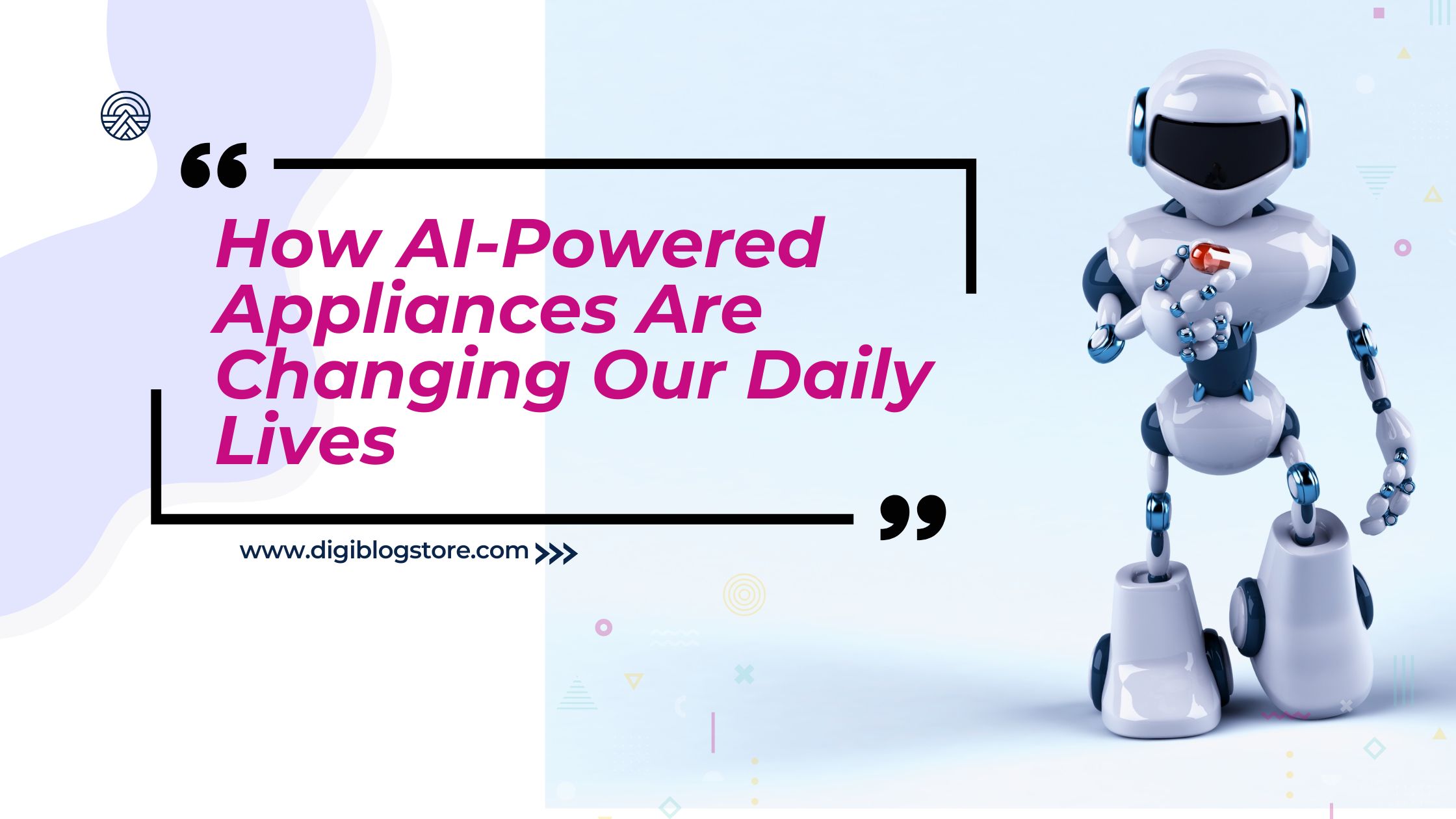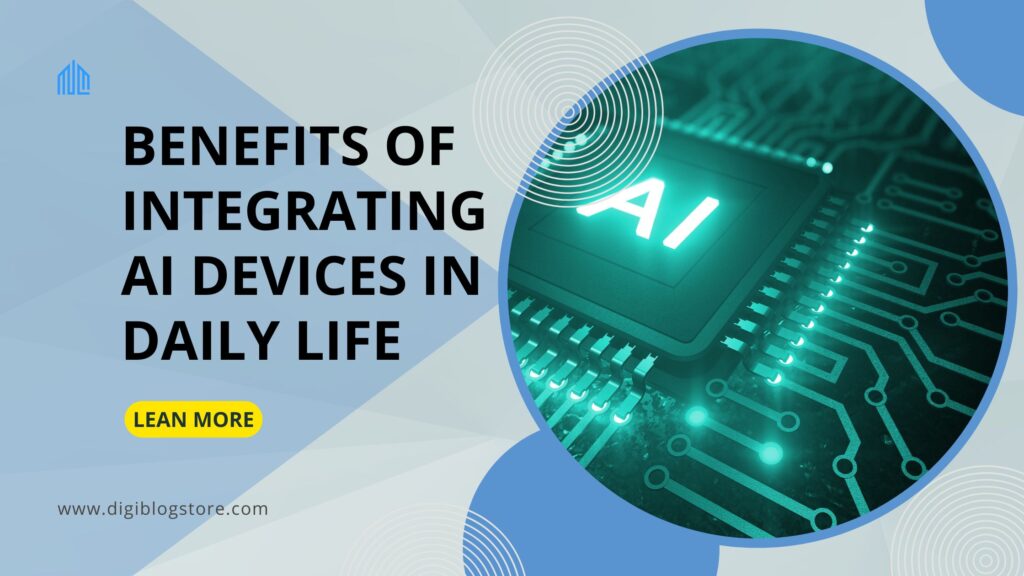How AI-Powered Appliances Are Changing Our Daily Lives

Have you ever wished for a home that anticipates your needs before you even realize them? A world where your appliances not only work for you but think for you? Welcome to the era of AI-powered appliances, where science fiction is becoming our everyday reality. 🤖🏠
From smart fridges that order groceries to thermostats that learn your preferences, Artificial Intelligence is revolutionizing our daily routines in ways we never imagined. But it’s not just about convenience; these intelligent devices are transforming healthcare, enhancing our wellness, and reshaping how we interact with technology. As we stand on the brink of this technological revolution, one question remains: Are you ready to embrace the AI-powered future?
In this post, we’ll dive deep into the world of AI-enabled appliances, exploring how they’re changing our homes, influencing our daily applications, and even impacting our health. We’ll uncover the fascinating ways AI is weaving itself into the fabric of our lives, from the moment we wake up to when we lay our heads down at night. Get ready to discover how Artificial Intelligence is not just a distant concept, but a present reality that’s making our lives smarter, easier, and more connected than ever before.
Understanding Artificial Intelligence in Daily Life
The Role of AI in Everyday Tasks
Artificial Intelligence (AI) has seamlessly integrated into our daily lives, automating and enhancing various tasks we perform routinely. From voice assistants to smart home devices, AI plays a crucial role in simplifying our day-to-day activities.
| Task Category | AI Application | Benefits |
|---|---|---|
| Communication | Voice assistants, chatbots | Quick information access, hands-free operation |
| Home Management | Smart thermostats, lighting systems | Energy efficiency, personalized comfort |
| Entertainment | Content recommendation algorithms | Personalized media suggestions, improved user experience |
| Personal Organization | AI-powered calendar apps | Efficient scheduling, time management |
Examples of AI Applications in Daily Routine
AI has become an integral part of our daily routines, often without us even realizing it. Here are some common examples:
- Smart speakers for voice-controlled music playback and information retrieval
- Navigation apps that use AI to predict traffic patterns and suggest optimal routes
- Email filters that automatically categorize and prioritize messages
- Fitness trackers that use AI to analyze sleep patterns and provide health insights
Benefits of Integrating AI devices in Daily Life

The integration of AI devices in our daily lives offers numerous advantages:
- Time-saving: AI-powered devices automate routine tasks, freeing up time for more important activities
- Improved efficiency: AI algorithms optimize processes, leading to better resource management
- Personalization: AI learns user preferences, providing tailored experiences and recommendations
- Enhanced safety: AI-powered security systems offer improved home and personal safety
- Accessibility: Voice-controlled AI assistants make technology more accessible to people with disabilities
As we explore the impact of AI on our daily lives, it’s clear that these technologies are revolutionizing the way we interact with our environment and manage our tasks. Next, we’ll delve into how AI is specifically transforming our homes through smart devices.
Exploring AI in Smart Home Devices
AI-Based Innovations for Home Automation
AI-powered smart home devices are revolutionizing the way we interact with our living spaces. These innovations offer unprecedented levels of convenience, efficiency, and control. Here are some key AI-based technologies transforming home automation:
- Voice-activated assistants
- Smart thermostats
- Intelligent lighting systems
- AI-powered security cameras
- Automated appliances
| Device Type | AI Capabilities | Benefits |
|---|---|---|
| Voice Assistants | Natural language processing, machine learning | Hands-free control, personalized responses |
| Smart Thermostats | Predictive analytics, learning algorithms | Energy efficiency, optimal comfort |
| Intelligent Lighting | Occupancy sensing, adaptive brightness | Energy savings, improved ambiance |
| AI Security Cameras | Object recognition, anomaly detection | Enhanced home security, real-time alerts |
| Smart Appliances | Usage pattern analysis, predictive maintenance | Improved efficiency, reduced downtime |
Enhancing Daily Living with Smart Home AI
The integration of AI into smart home devices has significantly improved our daily routines and quality of life. These intelligent systems learn from our habits and preferences, creating a more personalized and efficient living environment. For example, AI-powered thermostats can automatically adjust temperature settings based on occupancy patterns, while smart lighting systems can create the perfect ambiance for different activities throughout the day.
Security and Privacy Considerations with AI Home Devices
While AI-powered home devices offer numerous benefits, they also raise important security and privacy concerns. As these devices collect and process vast amounts of personal data, it’s crucial to implement robust security measures and maintain transparency in data handling practices. Manufacturers must prioritize encryption, regular software updates, and user control over data sharing to ensure the protection of sensitive information in smart homes.
AI and Machine Learning in Daily Applications
The Intersection of AI and Machine Learning in Everyday Life
AI and machine learning are becoming increasingly intertwined in our daily lives, often without us even realizing it. These technologies work hand in hand to process vast amounts of data, learn from patterns, and make intelligent decisions that enhance our everyday experiences.
Here’s a comparison of AI and machine learning in everyday applications:
| Aspect | AI | Machine Learning |
|---|---|---|
| Function | Makes decisions | Learns from data |
| Examples | Virtual assistants, chatbots | Recommendation systems, predictive text |
| User Interaction | Direct (voice commands, text) | Indirect (behind-the-scenes analysis) |
| Adaptability | Pre-programmed responses | Evolves with user behavior |
How Machine Learning Powers your Everyday Life: Real-World Examples
Machine learning algorithms are the unsung heroes behind many of our daily conveniences. Here are some examples:
- Personalized content recommendations:
- Streaming platforms (Netflix, Spotify)
- Social media feeds (Facebook, Instagram)
- Online shopping suggestions (Amazon, eBay)
- Predictive text and autocorrect in messaging apps
- Spam email filtering
- Traffic predictions and route optimization in navigation apps
Future Prospects of AI and ML Integration in Daily Life
As AI and machine learning technologies continue to advance, we can expect even deeper integration into our daily routines. Some exciting prospects include:
- Smart homes that anticipate our needs and adjust settings automatically
- Personalized health monitoring and early disease detection
- Advanced language translation in real-time
- Autonomous vehicles for safer and more efficient transportation
These advancements promise to make our lives more convenient, efficient, and safer. However, it’s crucial to consider the ethical implications and potential challenges as we move towards a more AI-integrated future. With this in mind, let’s explore the significant impact AI is making in the healthcare and wellness sectors.
Impact of AI in Healthcare and Wellness
Revolutionizing Healthcare with AI
AI is transforming healthcare by enhancing diagnostic accuracy, treatment planning, and patient care. Machine learning algorithms can analyze vast amounts of medical data, identifying patterns and insights that human doctors might miss. This leads to earlier detection of diseases and more personalized treatment plans.
| AI Application | Benefits in Healthcare |
|---|---|
| Diagnostic Imaging | Faster and more accurate analysis of X-rays, MRIs, and CT scans |
| Drug Discovery | Accelerated development of new medications |
| Personalized Medicine | Tailored treatment plans based on individual patient data |
| Predictive Analytics | Early identification of potential health risks |
AI-Powered Wellness Devices for Daily Use
AI has also made its way into personal wellness devices, empowering individuals to take control of their health. These smart gadgets offer real-time monitoring and personalized recommendations:
- Smartwatches with AI-driven health tracking
- AI-powered fitness apps that create customized workout plans
- Sleep trackers that use machine learning to improve sleep quality
- Nutrition apps that use AI to suggest personalized meal plans
Future Trends of AI in Healthcare
As AI continues to evolve, we can expect even more groundbreaking applications in healthcare:
- AI-assisted surgeries with improved precision and reduced risks
- Advanced telemedicine powered by AI for remote diagnostics and treatment
- AI-driven mental health support through chatbots and virtual therapists
- Predictive healthcare that anticipates health issues before they become serious
These advancements promise to make healthcare more accessible, efficient, and effective, ultimately leading to better health outcomes for people worldwide.
AI-powered appliances are revolutionizing our everyday experiences, seamlessly integrating into our homes and routines. From smart home devices that learn our preferences to healthcare applications that monitor our well-being, artificial intelligence is enhancing efficiency and convenience in unprecedented ways. These innovations are not just changing how we interact with technology; they’re reshaping our approach to daily tasks, health management, and home automation.
As we embrace this AI-driven future, it’s crucial to stay informed about the latest advancements and their potential impacts. By understanding and adopting these technologies responsibly, we can harness their benefits to improve our quality of life while being mindful of privacy and security considerations. The future of AI in our daily lives is bright, promising a world where our appliances don’t just work for us, but think alongside us.






